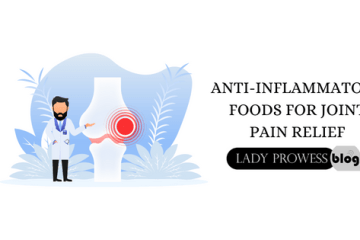Pregnancy Nutrition and Care
Discover the essential guidelines for pregnancy nutrition and care. Learn about proper diet, prenatal vitamins, and self-care during pregnancy for a healthy journey to motherhood.
If you are pregnant or thinking about getting pregnant, then take a moment to read this article as we guide you through the dos and don’ts of a healthy pregnancy.
Having a baby is an exciting time that inspires women to make healthier choices. This is why we’ve developed health tips to help you sleep better, reduce anxiety, and stay healthy throughout your pregnancy. We understand that staying as healthy as possible during pregnancy is essential.
Read More: Promoting Healthy Growth & Development.
To be healthy before, during, and after pregnancy involves so many different aspects of your life, especially what you eat because approximately 300 to 400 extra calories are needed each day to maintain a healthy pregnancy. These calories include balanced nutrition like fruits, vegetables, and whole grains.
Pregnancy Nutrition
Do you know that the food you eat as a pregnant woman is your baby’s main source of nourishment? So, it’s essential to get all of the nutrients you need. Every pregnant woman needs more of certain nutrients like protein, iron, folic acid, iodine, choline, calcium, vitamin D, potassium, and fiber. A healthy, well-balanced diet can help reduce some pregnancy symptoms, such as nausea and constipation,
What To Eat During Pregnancy
The following foods are beneficial for a healthy pregnancy:
- Take fruits (cantaloupe, honeydew, mangoes, prunes, bananas, apricots, oranges, and red or pink grapefruit) for potassium.
- For vitamin A and potassium, eat vegetables (carrots, sweet potatoes, pumpkin, spinach, cooked greens, tomatoes, etc.).
- For calcium, potassium, and vitamins A and D, eat dairy (fat-free or low-fat yogurt, skim milk, cheese, or fortified soy milk).
- Eat grains (ready-to-eat cereals or cooked cereals, wheat, oats, rice, corn, etc.) for iron and folic acid.
- For proteins, eat beans, peas, nuts, and seeds; lean beef, lamb, and pork; salmon, trout, herring, sardines, and pollock.
What To Avoid During Pregnancy
- Avoid alcohol
- Avoid excessive caffeine.
- Avoid raw meat and seafood.
- Avoid high-mercury fish.
- Avoid uncooked, processed meats.
- Avoid unpasteurized dairy.
Pregnancy Care
Health care during pregnancy is known as prenatal care or antenatal care. It involves all forms of medical checkups for pregnant women, so if you want to have a healthy baby or lower the risk of your baby being born too early, which can lead to health problems for your baby, then you’ll need to schedule regular healthcare appointments with a doctor throughout each stage of your pregnancy. The stages are:
- First Trimester (0 to 13 weeks)
- Second Trimester (14 to 26 weeks)
- Third Trimester (27 to 40 weeks)
Pregnancy care is a preventive healthcare exercise that involves regular checkups, treatments, and training to ensure a healthy pregnancy, labor, and delivery for mom and baby. It consists of prenatal (before birth) and postpartum (after birth).
Pregnancy care includes:
- Regular exercise (walking, swimming, and water workouts; riding a stationary bike; yoga and Pilates classes; low-impact aerobics classes; and strength training)
- Taking routine tests and screenings, such as a blood test to check for anemia, HIV, and your blood type,
- Monitoring your blood pressure (do this at every prenatal visit)
- Measuring your weight gain (to calculate your body mass index (BMI))
- Monitoring the baby’s growth and heart rate (fetal heart rate monitoring)
Prenatal care helps prevent complications and inform pregnant women about necessary steps they can take to optimize their health, reduce the risk of pregnancy complications, and protect their infants after delivery.
Possible Pregnancy Complications
Pregnancy is a complex process. While many women have normal pregnancies, others experience complications. However, falling into this category doesn’t mean you won’t have a healthy baby. This only means that your doctor will monitor you closely and take special care of you and your baby during prenatal care. Common complications that occur during pregnancy include:
Gestational diabetes
This is diabetes during pregnancy
Symptoms
In most cases, gestational diabetes doesn’t cause noticeable signs or symptoms. However, increased thirst and more frequent urination are possible symptoms.
Prevention
- Exercising
- Eat healthy foods.
- Don’t gain more weight.
Preeclampsia
This is a severe blood pressure condition unique to pregnant women. It complicates up to 8% of all deliveries worldwide. This condition is common among first-time mothers.
Symptoms
- Headaches.
- Blurry vision or light sensitivity
- Right-side abdominal pain
- Edema (swelling in your hands and face)
- Shortness of breath.
Prevention
- Losing weight (if you are overweight or obese).
- Controlling your blood pressure and blood sugar (if you had high blood pressure or diabetes before pregnancy)
- Maintaining regular exercise.
- Getting enough sleep.
- Eating healthy foods that are low in salt and avoiding caffeine
- Regular prenatal care
Premature or preterm changes in the cervix
This occurs when your cervix opens, weakens, or shortens too early in pregnancy.
Symptoms
- Pelvic pressure or pain in your belly
- Spotting or changes in your vaginal discharge.
Prevention
Schedule an appointment with your healthcare provider.
Problems with the placenta.
It may cover the cervix, pull away from the womb, or not work as well.
For symptoms and prevention, schedule an appointment with your healthcare provider for instructions.
Vaginal bleeding.
For symptoms and prevention, schedule an appointment with your healthcare provider for instructions.
Early labor.
Symptoms
- Regular or frequent sensations of abdominal tightening (contractions)
- Constant backache
- A sensation of lower abdominal pressure
- Vaginal spotting or light bleeding
- Changes in type of vaginal discharge (watery, mucus-like, or bloody)
Prevention
- Regular prenatal care
- Healthy diet
- Avoid illicit drugs.
Your baby is not growing well.
(Intrauterine growth restriction (IUGR), also known as Foetal growth restriction (FGR))
No symptoms or signs
Prevention
- Increased monitoring
- Early delivery
- Corticosteroid medication
Conclusion
As you probably know, your body will undergo many physical and hormonal changes during pregnancy. So, to maintain a healthy pregnancy, you’ll need to make great food choices from various sources. But you’ll also agree that it’s challenging to obtain sufficient amounts of certain nutrients, including iron and choline, from food alone, so aside from eating well, it’s essential to drink at least eight glasses of water each day and take prenatal vitamins.



0 Comments